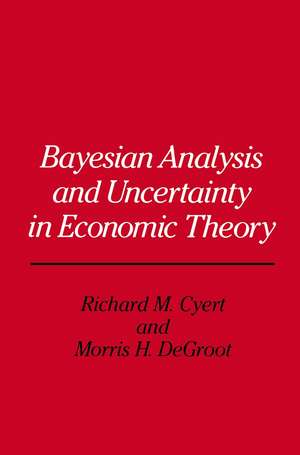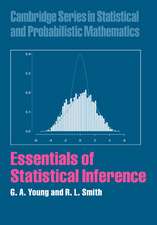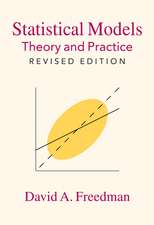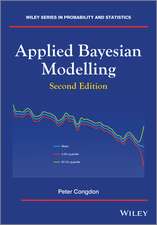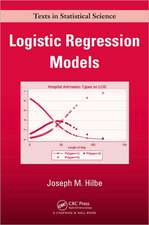Bayesian Analysis and Uncertainty in Economic Theory
Editat de Richard Michael Cyerten Limba Engleză Paperback – 12 oct 2011
Preț: 383.93 lei
Nou
Puncte Express: 576
Preț estimativ în valută:
73.47€ • 77.06$ • 61.16£
73.47€ • 77.06$ • 61.16£
Carte tipărită la comandă
Livrare economică 01-15 aprilie
Preluare comenzi: 021 569.72.76
Specificații
ISBN-13: 9789401079228
ISBN-10: 9401079226
Pagini: 224
Ilustrații: XVI, 206 p.
Dimensiuni: 155 x 235 x 12 mm
Greutate: 0.32 kg
Ediția:Softcover reprint of the original 1st ed. 1987
Editura: SPRINGER NETHERLANDS
Colecția Springer
Locul publicării:Dordrecht, Netherlands
ISBN-10: 9401079226
Pagini: 224
Ilustrații: XVI, 206 p.
Dimensiuni: 155 x 235 x 12 mm
Greutate: 0.32 kg
Ediția:Softcover reprint of the original 1st ed. 1987
Editura: SPRINGER NETHERLANDS
Colecția Springer
Locul publicării:Dordrecht, Netherlands
Public țintă
ResearchCuprins
1 Introduction.- 2 Bayesian Decision Theory.- 3 Behavioral and Control Theory of the Firm.- 4 Bayesian Analysis and Duopoly Theory.- 5 Multiperiod Decision Models with Alternating Choice as a Solution to the Duopoly Problem.- 6 Cooperation and Learning in a Duopoly Context.- 7 Interfirm Learning and the Kinked Demand Curve.- 8 Sequential Strategies in Dual Control Problems.- 9 Adaptive Utility.- 10 Some Examples of Adaptive Utility.- 11 Sequential Investment Decisions.- 12 Capital Allocation within Firms.- 13 Rational Expectations.- 14 Epilogue.- References.- Author Index.
